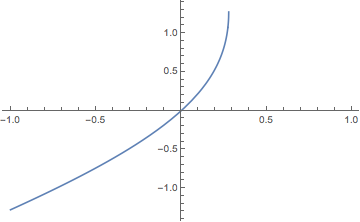Consider the following functions:
r[x_] := r0 Exp[(k x)/(r1/(r1 + r[x]))];
f[x_] := (k x)/(r1/(r1 + r[x]));
and that
r1=1; r0=1; k=1;
I'd like to plot the function f[x]:
Plot[(k x)/(r1/(r1 + r[x])),{x,-1,1}]
How can the recursion relation can be dealt with?

